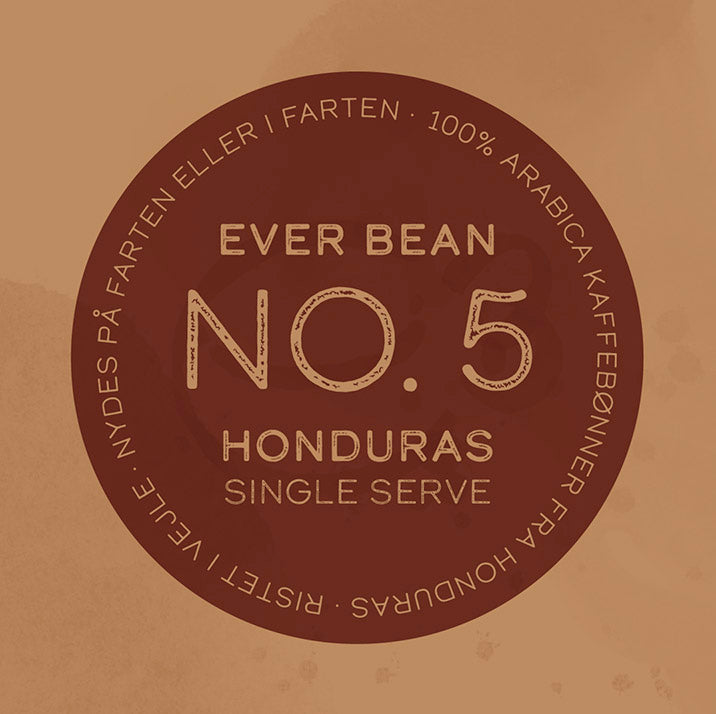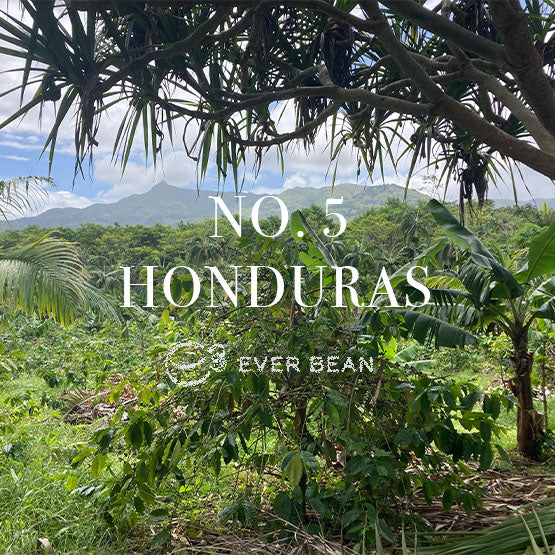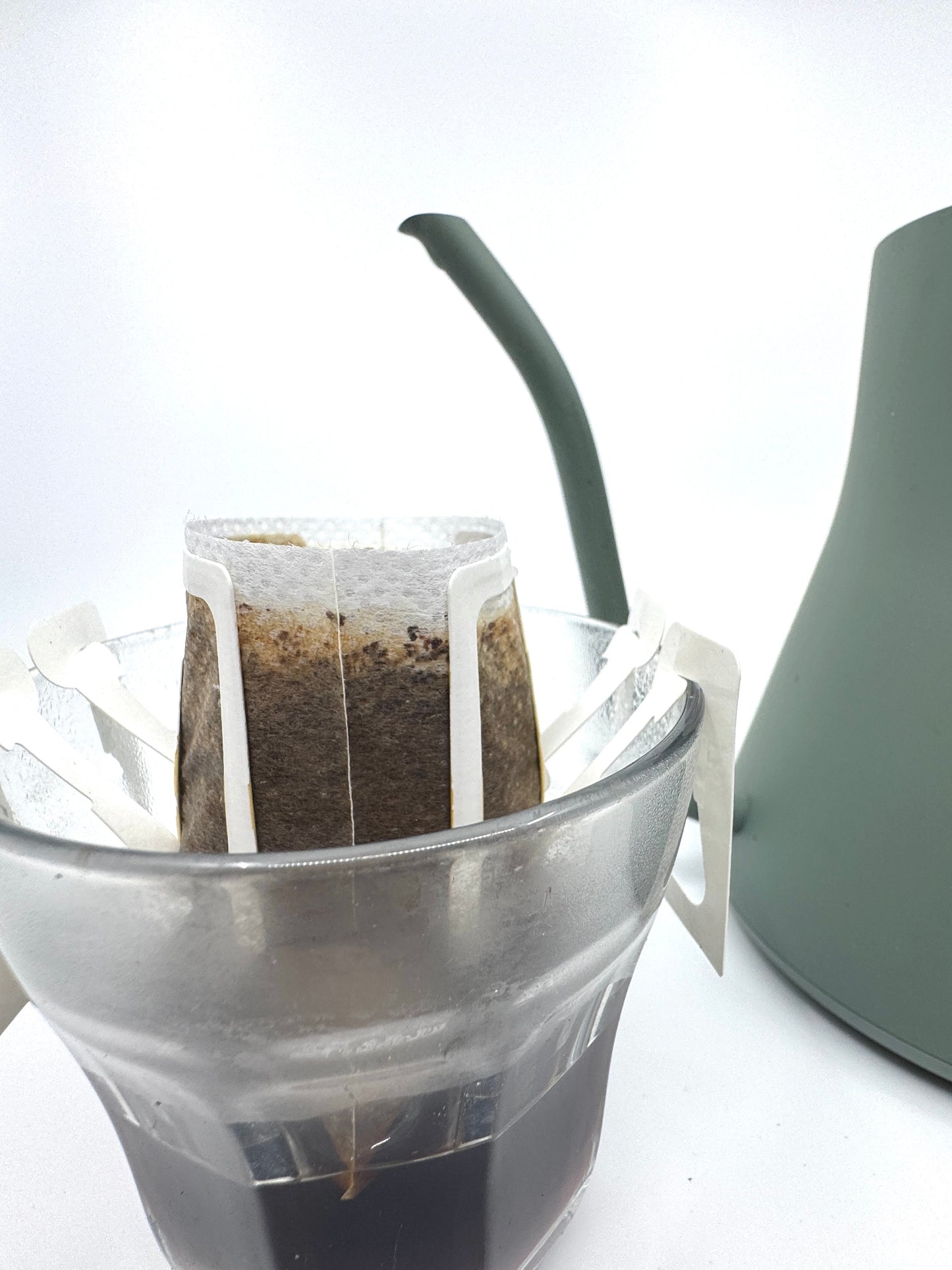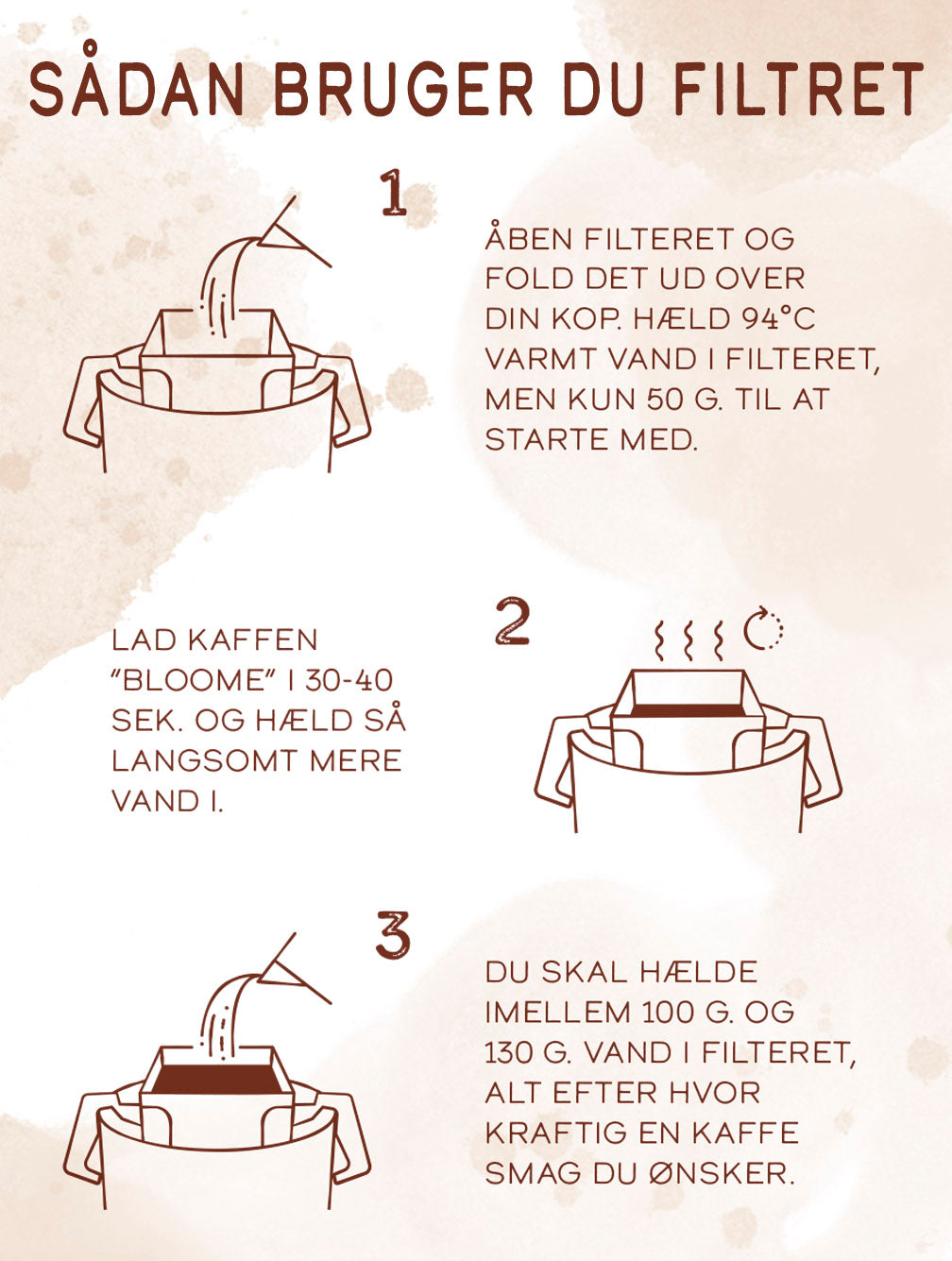Single Serve, No. 05 · Honduras
Single Serve, No. 05 · Honduras

EverBean
Couldn't load pickup availability
smagsnoter
Sweet caramel, honey and chocolate
Bønne info
Oprindelse: Honduras
Område: Ocotepeque
Bønne: Arabica
Bønne sort: Pacas, Obata, Lempira, IH-Café-90
Grohøjde: 1,100-1,500 m above sea level.
Forarbejdning: Washed
Kaffe info.
Ristning

Frugtig

Dybde

View full details




About Single Serve
Single-serve coffee makes it easy to brew a perfect cup of coffee without the hassle. With coffee pods containing pre-ground beans, you can quickly and easily brew your coffee straight from the pod – perfect for a busy morning or when you’re on the go. A practical and convenient solution for coffee lovers.
Om kaffen
In Honduras, coffee production is a craft that everyone takes great pride in performing. This is evidence of a truly solid coffee culture, with deep roots in the country.
Coffee from Honduras is known to be less acidic than other coffees from Central America. The coffee is incredibly smooth and round with flavors of sweet caramel and dark chocolate.
Single serve, the easy way to get coffee on the go.
Take your coffee with you or enjoy a single cup without brewing a pot every time. With Single serve from EverBean, you only need heated water and a cup to get your coffee. EVERYTHING is ready and you don't have to carry a lot of equipment with you.
About the cultivation and processing - How to wash a coffee?
The beans are picked, and then the unripe beans, leaves, or anything else that is not a ripe bean will be discarded. The next step is depulping in a machine that separates the beans from the husk. The depulped beans are still covered in a viscous substance called mucilage. In the next step, this mucilage is removed and the parchment loses its slime-like texture and becomes slightly less smooth. For most coffees, the process of removing the mucilage takes around 12 to 24 hours, although this also depends on the temperature, the thickness of the mucilage, and the concentration of enzymes. Once the mucilage has been completely removed, the coffee can be dried. Usually this is done either in the sun or in a mechanical dryer, or even a combination of both. Drying in the sun can be done either on large terraces that have a concrete or similar subfloor, or on African beds. The beans are spread out in a layer varying from 2 to 10 centimeters in thickness, and are raked frequently to ensure a uniform drying process for all the beans. It can take from five to ten days to reach the desired moisture level, again depending on the meteorological conditions. On large plantations, owners may choose to dry in machines that use hot air. However, this process requires great quality control, as it can affect quality if not done well, and it can also lead to high energy costs.
QUALITIES AND DESCRIPTIONS
These coffees often have lighter, more accessible bodies, clean cups, fruity and floral descriptions, and a lighter or more intense acidity. Most countries known for the acidity of their coffees will mainly process washed coffees to preserve these characteristics.
About the green beans - Cafesmo Ocotepeque
The 280+ members who together form ‘CAFESMO’ have been working together for many years and formalised their collaboration in 2016. Their individual fincas are relatively small, most of them ranging roughly from 2 to 12 hectares, but united they stand strong, and together they stand for their motto: ‘diversity and quality’. All their fincas are FTO certified. More importantly, through careful selection they are slowly perfecting the varieties they grow at specific altitudes or soil types, as well as their growing techniques, and they are now able to offer a growing range of specialist profiles. In early 2019 they exported their first container of micro-lots to the UK. The area where they grow coffee, a large zone around the hills of Mercedes, is located in the very south of Honduras, a stone’s throw from El Salvador and Guatemala. Their plantations are protected by some of the highest peaks in the country. On the west side, Cerro Pital towers proudly over their fincas, and on the other flanks, the Guisayote National Reserve and the Pacayita Volcano create ideal conditions for growing coffee. The presence of the mountains creates very favorable microclimates, as well as a diverse fauna and flora on and around the plantations, with plenty of natural shade. The Ocotepeque area is also known for its fertile soil and the perfect altitude for growing unique, rich-tasting coffees. They are confident that Mercedes and Ocotepeque will continue to gain fame in the coming years, and with good reason. Their members grow coffee between 950 and 2,000 meters, although the majority of the land is between 1,200 and 1,600 meters. Thanks to this varied topography, they have a long harvest season, starting in late October and lasting until March. Their coffee varieties include: Pacas, Lempira, Parainema, Catuaí, Obatá, Colombia, IHCAFE90. They have their own wet and dry facility, and for their specialty coffees they prepare fully washed, semi-washed, red honey, black honey and natural batches. Recently they have started working with Carbonic Maceration (Anaerobic), which has resulted in some of their best profiles to date. That is why they have decided to increase their focus on anaerobic preparations because they simply love the richness and breadth of profiles they get from it. Their motto is ‘diversity and quality’, and this does not only apply to their coffees. Their members are also a diverse group, each standing for their own quality. They have young as well as older members, women and men, one who is a microbiologist, and one who has been a primary school teacher her entire adult life, alongside growing coffee. CAFESMO is a proudly Honduran initiative and is run entirely by Hondurans, but they collaborate with people from Canada, the USA and the Netherlands. That's why they can work directly with small importers and roasters, and they are happy to answer any inquiries in Spanish, English, French, German, Italian and Dutch. Together they stand for 'diversity and quality', together they stand strong. Team CAFESMO
All the coffee in the world
-

Central America
With coffee-growing countries such as Costa Rica , Panama , Mexico ,...
-

South America
Countries such as Brazil , Colombia , Ecuador and Argentina are all...
About our choice of coffee beans
Coffee is at the heart of everything we do at EverBean. It is the driving force behind our commitment to equipment, service and guidance in coffee brewing. We value the quality of the coffee's raw materials, as that is what ends up in your cup. At EverBean, our primary focus is to ensure quality in every cup. We import carefully selected coffee beans from the world's best sources to ensure the ultimate taste experience."
The continents
No matter which coffee farm we get the beans from, you can always find information about the origin, the farm they are grown on, the process the beans have gone through and the history behind the producer. For us, it would be anything but the truth if we took all the credit for the beautiful taste experiences in the cups.
Our coffee selection covers most of the world and we never take home a coffee we don't like just to make money. We stand behind our work and taste.
Sometimes we take home very exclusive beans in smaller portions than the "normal" roasts we have. We do this to be able to offer you something completely unique and expand our knowledge at the same time.
YOUR choice, YOUR taste
Whether it's on a trip abroad, a conversation with a random person, or through our regular partners around the world, we always take the best green beans home and roast them at our own roastery.
Wherever the beans come from, we give them the utmost respect and care, as we know how much they have been through to get to your cup. You can always ask about our coffee, its origin and the process. Or you can read much more about the journey of a coffee bean on our blog.








